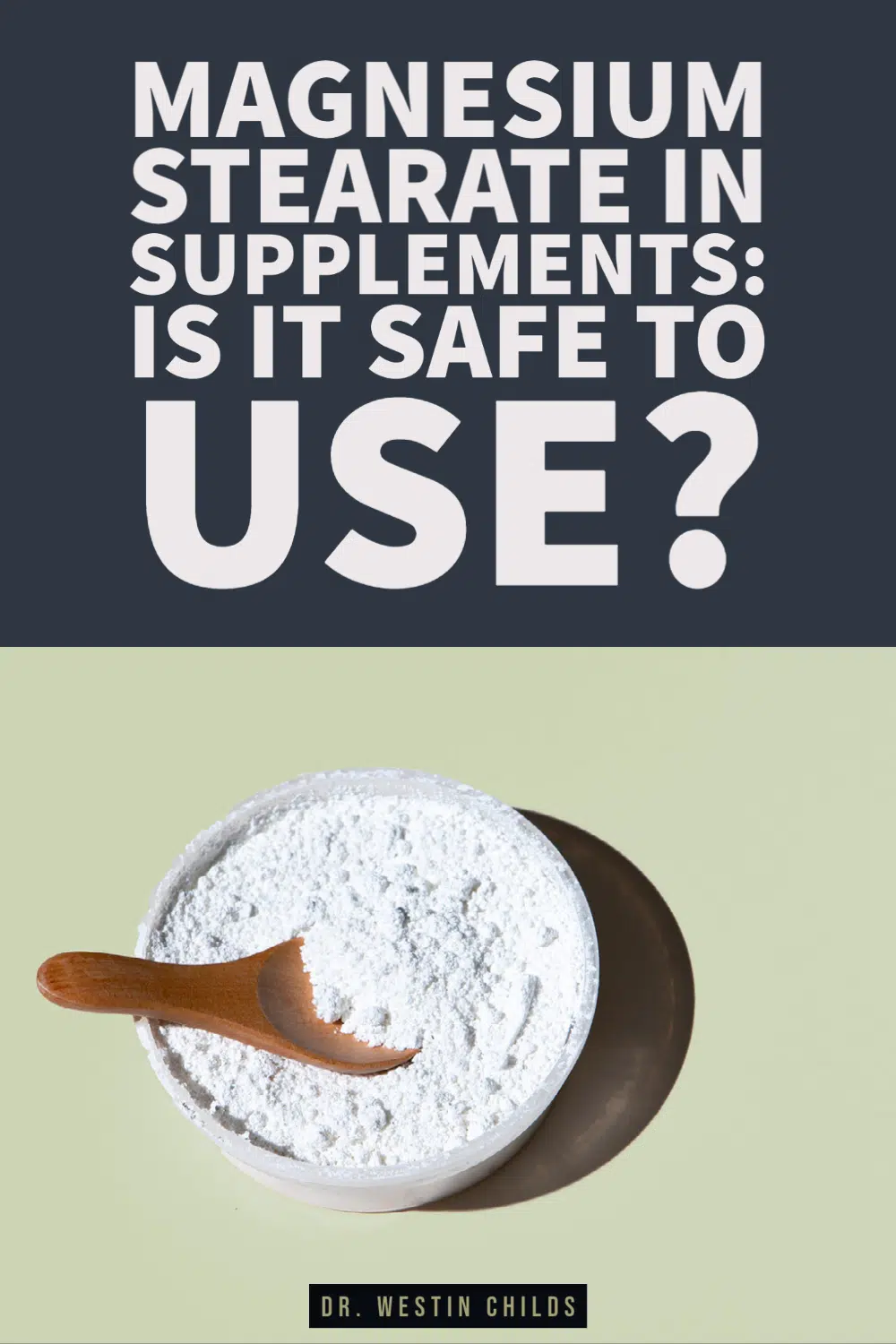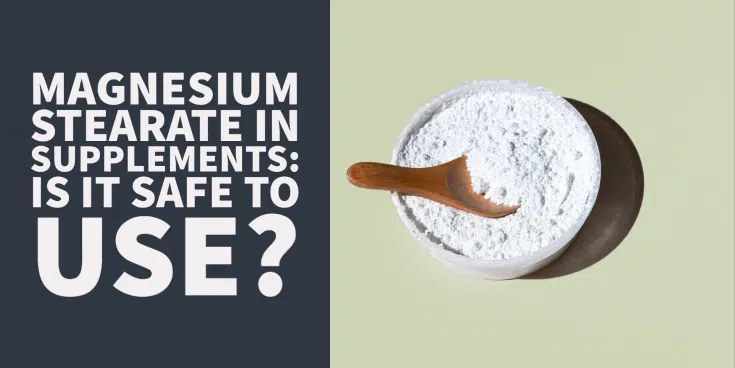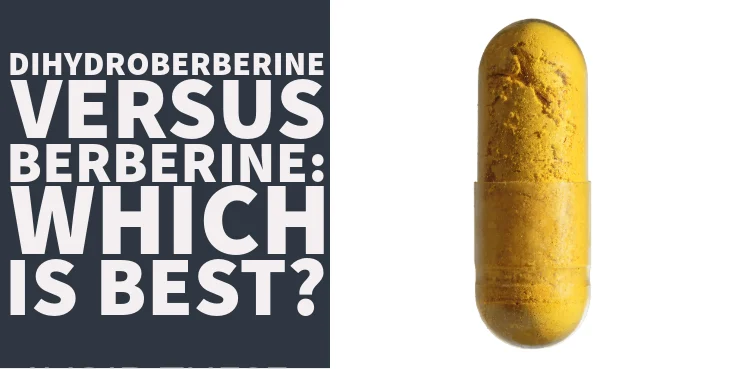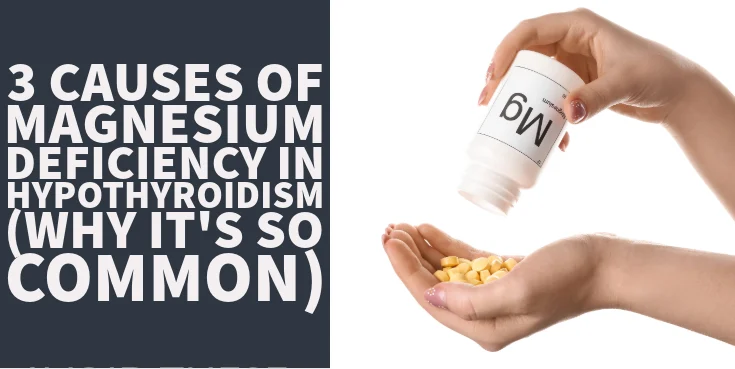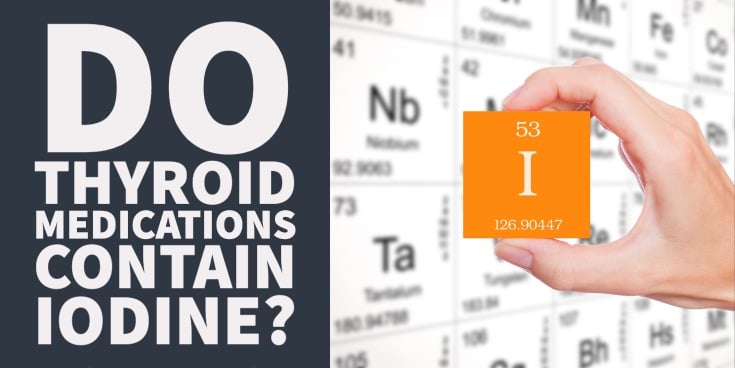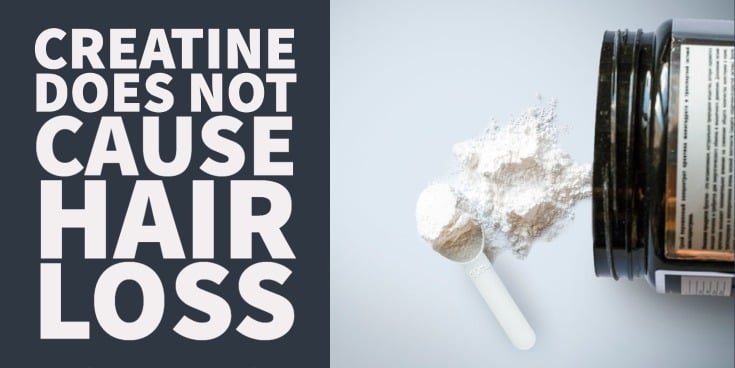Depending on where you look you can read that magnesium stearate is a toxic harmful additive or a completely harmless filler.
Which one is correct and why does it matter to you?
We are going to explore the science and attempt to answer the question as to whether or not it’s actually something you should be concerned about.
If you take supplements (or medications) then you’ll find this information relevant because magnesium stearate is often found in both.
Disclosure: I sell supplements and some contain magnesium stearate as a binder. I maintain my belief that magnesium stearate is harmless in 99.9% of people who use it. If there is any new data or scientific evidence that you have that I have not referenced here please feel free to share it with me in the comments below.
The Controversy Behind Magnesium Stearate
If you want the TLDR version of this article then here it is:
I have yet to find a single study suggesting that magnesium stearate is harmful to people who consume it in reasonable and small amounts in dietary supplements.
I am only aware of 1 study which showed that magnesium stearate can cause an allergic-like reaction but this can occur with virtually any substance including healthy foods.
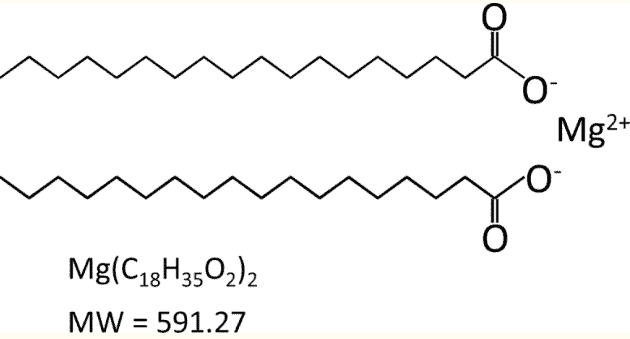
My clinical experience, as well as evaluating all of the clinical evidence, suggests that magnesium stearate (if sourced correctly) used in small amounts found in dietary supplements is NOT harmful.
Okay, having said that, let’s now take a deeper dive into the topic of magnesium stearate.
My goal here is to try and dispel some of the myths surrounding this binder found in both over-the-counter supplements and pharmaceutical medications (1) by looking at clinical evidence.
Why does magnesium stearate get such a bad reputation?
I’m not exactly clear why but my best guess has to do with the information found on natural health websites and blogs.
Much of this information, however, contains anecdotal evidence and does not include citations to peer-reviewed papers.
This doesn’t mean that their opinions are not valid but it does mean that we should take their opinions with a grain of salt and compare it to what we see both clinically (in medical practice) and in literary papers.
And, when you take a look at both of these sources, it does not appear that magnesium stearate is harmful to people who consume it in small portions.
But what exactly is magnesium stearate?
Put simply, magnesium stearate is an additive found in over-the-counter supplements, pharmaceutical medications, gums, and baking ingredients.
It is added to help prevent caking of the ingredients, to aid in the flow of the active ingredient, and to provide structure and integrity to the ingredients.
It is created by combining both magnesium and fatty acids together and it contains mostly fat (about 90%) and some magnesium (about 10%).
You can imagine that as a compound with mostly fat that it is greasy when you are handling it and this is the reason that it is used as a lubricant as well as an anti-caking agent for industrial purposes (2).
Once absorbed into the body, it breaks down to magnesium, stearic acid, and fractions of the fat it was created with (palmitic acid).
These components are then absorbed into the body through the intestinal tract or eliminated via your stool.
Some people are concerned that the breakdown products of magnesium stearate may be harmful to the intestinal tract or that the source of the fats may cause issues.
What does the Evidence Suggest?
From a pharmaceutical perspective, magnesium stearate is considered GRAS (generally regarded as safe).
This doesn’t mean that it is necessarily safe as there are plenty of substances that are GRAS which I personally wouldn’t consume but this does tell us that the government does not consider this substance harmful.
But now, let’s break down some of the claims that people have made against magnesium stearate and see how they compare to the clinical evidence and studies that we have:
#1. Does magnesium stearate directly result in negative reactions in humans?
The first complaint that people have against magnesium stearate is that it is somehow harmful to humans.
These people often cite the fact that magnesium stearate is used as an industrial lubricant as a problem for humans.
I might agree with this idea in theory but just because it has uses outside of supplements and medications does not automatically make it bad or harmful.
If it were actually harmful then we would see actual human studies which suggest this.
Because magnesium stearate is used in both supplements and medications, there are millions of people who consume it on a daily basis.
If it was harmful in the doses we are talking about here, wouldn’t we expect to see a large portion of these people with negative reactions?
We would, and the truth is we don’t.
We also don’t have any studies which suggest that it is harmful, in fact, it’s quite the opposite, we have studies that show that it is safe to consume (unless used in massive doses).
Studies:
- https://www.ncbi.nlm.nih.gov/pmc/articles/PMC5655391/ (3)
- https://www.ncbi.nlm.nih.gov/pubmed/7434368 (4)
- https://www.ncbi.nlm.nih.gov/pubmed/23241129 (5)
#2. Is stearic acid harmful to your immune system?
Some people point to a study that suggests that stearic acid has a negative impact on the immune system.
This is relevant to our discussion here because once absorbed, magnesium stearate will break down into several compounds and one of those compounds is stearic acid.
So, if magnesium stearate isn’t harmful on its own then perhaps its breakdown products are.
This doesn’t seem likely.
The study often cited when making this claim can be found here (6).
But there are many problems with citing this study as a source that suggests that magnesium stearate is somehow harmful.
The immune cells in this study were extracted from mice and placed in a large amount of stearic acid in a petri dish.
The most important reason this is not relevant is that this experiment does not represent reality for anyone reading this article.
The stearic acid that may be created from magnesium stearate is isolated to your gastrointestinal tract. And, the amount that would be created would be incredibly small (compared to what was used in this study).
Even if it was true that stearic acid was harmful to mice B and T cells, this doesn’t automatically mean that it is harmful to human B and T cells.
#3. Does magnesium stearate negatively affect the absorption of the nutrients you want to obtain from the supplement/medication you are taking?
If magnesium stearate is not harmful directly then perhaps it influences the absorption of the nutrients you are trying to absorb.
This isn’t likely, for the sole reason that magnesium stearate is used in many pharmaceutical medications.
If it’s one thing that pharmaceutical companies are good at it’s getting their medications into your body (I don’t think anyone disputes this).
Furthermore, studies show that magnesium stearate does not block absorption, although it may delay how quickly it is absorbed into your intestinal tract (7).
“Changes in sodium starch glycolate and magnesium stearate levels, and the order of addition microcrystalline cellulose (intra- vs. extragranular) were significant only in affecting percent drug released (Q) in 5,10, and 15 min. Statistical analysis of data showed no significant curvature.”
– Evaluation of in Vitro release rate and in vivo absorption characteristics (8)
What does this mean for supplements?
It means that you shouldn’t worry about the absorption of vitamins or nutrients in supplements that contain magnesium stearate.
#4. Does magnesium stearate always contain GMOs and aren’t these harmful?
Lastly, even if magnesium stearate isn’t harmful isn’t it bad that it is sourced from fats that are genetically modified?
The short answer to this question (and I’ve answered it in more detail below) is that not all sources of magnesium stearate are sourced from GMO fats/oils.
It’s possible to avoid this issue by obtaining a high-quality source.
Understanding Toxicity
Understanding toxicity is an important concept and one that you should be aware of.
Everything and I mean everything, has the potential to be toxic.
This includes components of healthy foods, water, over-the-counter pharmaceutical agents, supplements, and so on.
So, whenever we talk about the relative safety of a compound we always need to be asking ourselves these questions:
Is the compound harmful at large doses?
There are some compounds, such as L-glutamine (9) and Vitamin C, which can be consumed in massive quantities and not cause any issues. This is not true, for instance, of other vitamins such as Vitamin D and Vitamin A (10)).
Do the benefits of the compound outweigh the potential risks involved?
Even if the compound has risks, are you willing to take those risks if it means obtaining a better quality of life? If the risk of using some supplement is a slight headache vs a huge boost in energy and an improvement in mental focus, are you willing to accept the side effect for the benefit?
Does the clinical evidence (meaning what you see in clinical practice) match what you see in clinical studies?
I have seen many instances where studies show that certain natural ingredients are beneficial but these claims fall flat when I try them out in clinical practice. In addition, the reverse is also sometimes true. It’s important to match what you see clinically with what clinical studies show.
When you look at magnesium stearate through this lens, it becomes apparent that there are very few risks involved.
Furthermore, the amount of magnesium stearate that you actually consume in each capsule is incredibly small.
So, even if it was harmful in large doses, you would never actually reach that harmful level simply because there is only so much you can fit into a small capsule.
I run into this problem all the time when formulating supplements.
My most potent probiotic, for instance, must be contained in a sachet because I can’t fit 350 billion probiotics into a single capsule. It would take something like 8 to 10 capsules for me to provide your body with 350 billion CFU of 18 strains of probiotics.
You can use this example to put things into perspective.
If it’s difficult to put healthy ingredients into capsules it’s also difficult to put unhealthy in them as well.
In addition, the “unhealthy” binders and fillers would represent a small percentage of the total ingredients compared to the active ingredients (probiotics in this case).
Does this mean it’s Harmless for Everyone?
Not necessarily and this is something that I want to be clear on.
The current evidence suggests that it is harmless for the vast majority of people who take it but there are a handful of people who may experience allergic-like reactions after consuming it (11).
The frequency of this allergic reaction is not known but is estimated to be very low.
How do you know if you are allergic to magnesium stearate?
People who are allergic have a specific set of symptoms which usually include symptoms such as rash, hives, headaches, stomach upset, and nausea.
These symptoms are indicative of a potential allergic reaction but their presence doesn’t automatically tell you what they are from.
Remember:
Basically, anything you come into contact with can cause an allergic reaction and this includes foods.
You can pinpoint what caused your reaction by tracking down when the symptoms started and what changed around that time.
For instance, if you notice an abrupt onset of those allergic-like symptoms after taking a new supplement then it may be caused by something in it.
But just having the symptoms doesn’t mean they are caused by magnesium stearate!
There are plenty of other substances found within supplements which you could be reacting to as well.
When you factor in all of these compounding variables, I submit that most cases of allergies to magnesium stearate are probably related to other causes.
Having said all of this, I should also point out that I am continually surprised by how certain people react to certain substances.
It would not surprise me, and I do believe that this is probably the case, that there are some people out there who simply cannot tolerate magnesium stearate.
The only issue is that we have no way of determining who these people are.
I would also estimate, based on my own experience in using magnesium stearate, that people who fall into this category are exceedingly rare.
Perhaps 1 out of 1,000 or even 1 out of 5,000.
Concerns over Magnesium Stearate Sourcing (Vegetable based and GMO)
Another concern that some people have is the source of magnesium stearate.
Magnesium stearate may be manufactured from the hydrogenation of cottonseed or other vegetable oils (12).
If you are conscious about your health then you probably understand why this could be a potential issue.
Certain oils, especially those which are partially hydrogenated, or produced via the refinement process, can have an inflammatory effect on your body and cells.
Furthermore, we know that some of these oils are produced from plants that are genetically modified.
Does this promote an issue even if magnesium stearate is otherwise safe?
Potentially, this problem can be circumvented, and indeed it often is, by reputable supplement manufacturers, by obtaining their magnesium stearate from non-GMO, non-hydrogenated palm oil.
If your magnesium stearate is sourced in this way then the concern regarding the consumption of GMO products is eliminated.
However, what about other companies which do not source their magnesium stearate in the same way?
Well, this may pose an issue and may help explain why low-grade supplements found in your supermarkets are not nearly as efficacious as those which are sourced from more reputable places.
But it is NOT an argument against magnesium stearate as a whole, rather it is an argument against using magnesium stearate from a bad source (hydrogenated GMO fats).
Let’s suppose that this was true and that the source was a problem for some people.
Even if that were the case, the amount of hydrogenated oil that you would be consuming would be incredibly small and would, again, probably only have an impact on a small percentage of people.
I still wouldn’t recommend that you consume hydrogenated oils but I am pointing out that it wouldn’t be the end of the world for most people.
Conclusion
I understand that this may be a hotly debated topic and I remain open to changing my mind on this topic.
If you have any studies that I have missed which suggest that magnesium stearate is harmful please feel free to provide them below.
I am happy to engage in productive conversation about this topic so we can push the conversation forward.
My goal is to continue to learn and provide information to everyone and part of that is looking at an argument from all viewpoints.
There are many people who contend that magnesium stearate is dangerous while there are many others who believe, like me, that it is harmless.
But now I want to hear from you:
Have you had any negative reactions with magnesium stearate?
If so, how did you react?
Do you make it a point to avoid supplements with magnesium stearate?
If so, why?
Please leave your questions or comments below!
